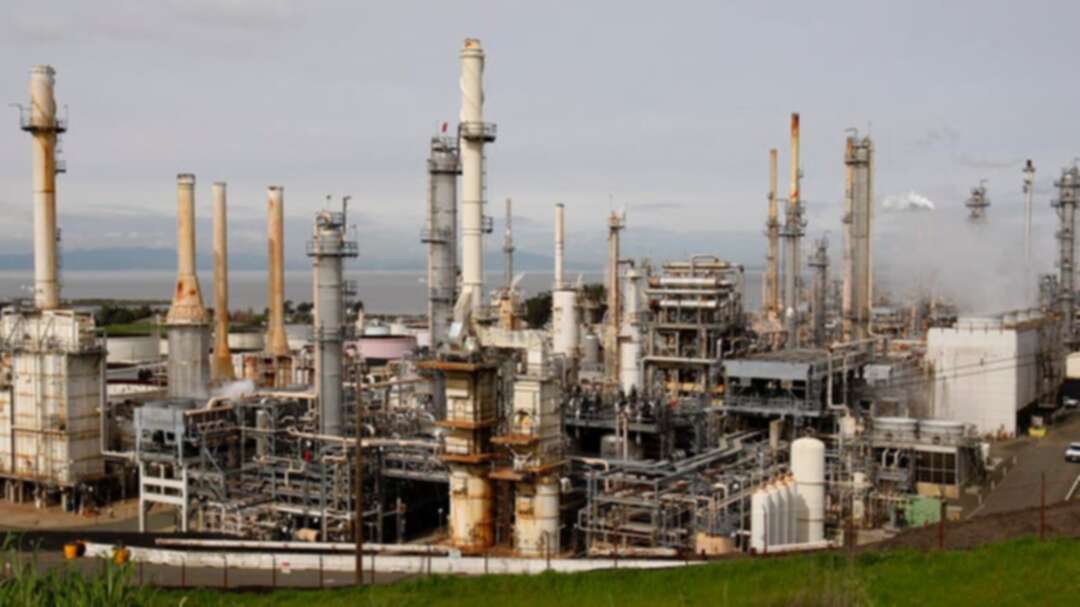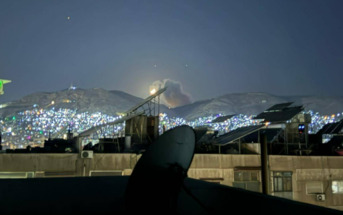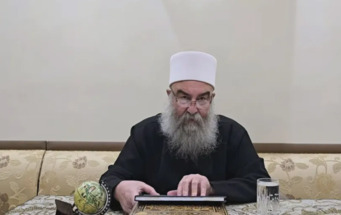-
Oil prices recover on reports of OPEC output drop, trade talk optimism

Oil prices rose on Tuesday after a media report showed that OPEC oil production had fallen to an eight-year low in September and as optimism over renewed US-China trade talks boosted investor sentiment.
Benchmark Brent crude prices rose nearly 1.2 percent to $59.95 per barrel, while prices of US crude (WTI) inched up 1.15 percent to $54.69 a barrel.
China’s top trade negotiator will lead an upcoming 13th round of talks aimed at resolving a trade war with the US, the Associated Press reported on Monday, citing a senior Chinese official.
“Oil has rebounded today on a combination of trade talk optimism and talk that OPEC production had fallen in September,” Jeffrey Halley, a senior market analyst for Asia Pacific at forex trading platform OANDA in Singapore, told Al Arabiya English.
A Reuters survey from Monday showed that OPEC oil production fell to 28.9 million barrels per day (bpd), down 750,000 bpd from August’s revised figure.
This comes after OPEC, Russia, and other non-members, known as OPEC+, agreed in December to reduce supply by 1.2 million bpd from Jan. 1 this year. OPEC’s share of the cut is 800,000 bpd, to be delivered by 11 members – exempting Iran, Libya and Venezuela.
Sources told Reuters that output from Russia, which now plays a key role in stabilizing global oil prices along with top exporter Saudi Arabia, fell to 11.24 million bpd in September from 11.29 million bpd a month ago.
In July, US crude oil output fell to 11.81 million bpd, compared to 12.08 million bpd in June, according to the latest report from the US Energy Information Administration. A drop in US crude prices and investor pressure to boost returns have pressured margins at shale firms, prompting them to cut production and abort the drilling of new wells.
But, the oil price spike may be short-lived. According to Halley, it is hard to see the rally continuing as excess supplies and returning Saudi production combined with global economic worries will limit gains.
“Oil has now entirely retraced its Saudi attack led rally, suggesting that economics, not geopolitics, is the longer-term driver for oil,” he told Al Arabiya.
Saudi Aramco’s key oil-processing facilities in Abqaiq and Khurais were attacked on September 14 by drone strikes, which knocked off about five percent of global energy supply and sent global crude oil prices up by as much as 20 percent.
Last week, Reuters reported that Saudi Arabia had restored its oil production capacity earlier than expected to 11.3 million barrels per day after the attacks on its oil-processing facilities.
Tags
You May Also Like
Popular Posts
Caricature
BENEFIT Sponsors BuildHer...
- April 23, 2025
BENEFIT, the Kingdom’s innovator and leading company in Fintech and electronic financial transactions service, has sponsored the BuildHer CityHack 2025 Hackathon, a two-day event spearheaded by the College of Engineering and Technology at the Royal University for Women (RUW).
Aimed at secondary school students, the event brought together a distinguished group of academic professionals and technology experts to mentor and inspire young participants.
More than 100 high school students from across the Kingdom of Bahrain took part in the hackathon, which featured an intensive programme of training workshops and hands-on sessions. These activities were tailored to enhance participants’ critical thinking, collaborative problem-solving, and team-building capabilities, while also encouraging the development of practical and sustainable solutions to contemporary challenges using modern technological tools.
BENEFIT’s Chief Executive Mr. Abdulwahed AlJanahi, commented: “Our support for this educational hackathon reflects our long-term strategic vision to nurture the talents of emerging national youth and empower the next generation of accomplished female leaders in technology. By fostering creativity and innovation, we aim to contribute meaningfully to Bahrain’s comprehensive development goals and align with the aspirations outlined in the Kingdom’s Vision 2030—an ambition in which BENEFIT plays a central role.”
Professor Riyadh Yousif Hamzah, President of the Royal University for Women, commented: “This initiative reflects our commitment to advancing women in STEM fields. We're cultivating a generation of creative, solution-driven female leaders who will drive national development. Our partnership with BENEFIT exemplifies the powerful synergy between academia and private sector in supporting educational innovation.”
Hanan Abdulla Hasan, Senior Manager, PR & Communication at BENEFIT, said: “We are honoured to collaborate with RUW in supporting this remarkable technology-focused event. It highlights our commitment to social responsibility, and our ongoing efforts to enhance the digital and innovation capabilities of young Bahraini women and foster their ability to harness technological tools in the service of a smarter, more sustainable future.”
For his part, Dr. Humam ElAgha, Acting Dean of the College of Engineering and Technology at the University, said: “BuildHer CityHack 2025 embodies our hands-on approach to education. By tackling real-world problems through creative thinking and sustainable solutions, we're preparing women to thrive in the knowledge economy – a cornerstone of the University's vision.”
opinion
Report
ads
Newsletter
Subscribe to our mailing list to get the new updates!






















